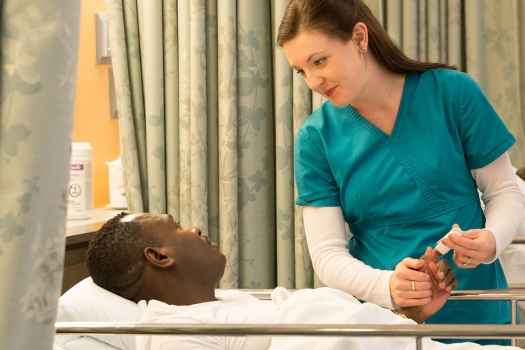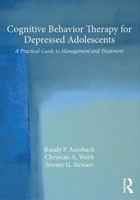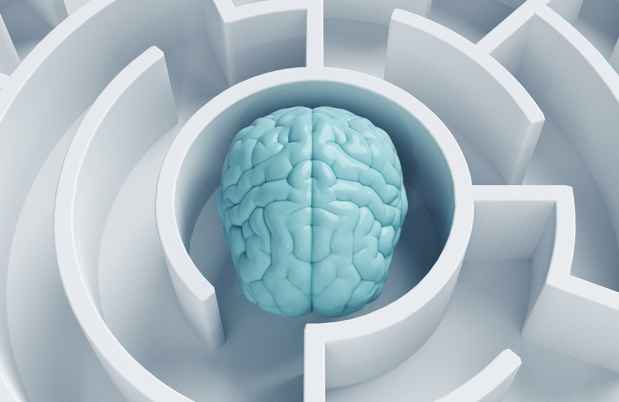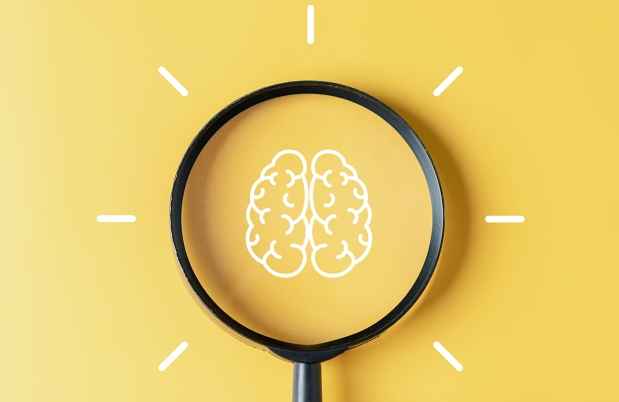Everything You Need To Know About Depression
The condition’s dark feelings can be intense and overwhelming—whether it’s situational, seasonal, or persistent. With the right care, it can be managed and treated successfully
August 26, 2023
Feeling sadness is normal, especially when facing difficult circumstances or dealing with loss. Some of us even feel glum when it’s just a cloudy day.
But for many people, this dark feeling can be intense and overwhelming. It can cause you to feel hopeless and helpless and can carry on for weeks, months, or even longer. This intense, prolonged sadness is often how people describe depression.
If you or a loved one are struggling with depression, there is help available. Depression, sometimes called clinical depression or major depressive disorder, is manageable and treatable.
Keep Reading To Learn
- The truth—and myths—about depression
- How to recognize if you or a loved one may be struggling with depression
- How to treat and manage depression successfully
Depression Is More Than ‘Feeling Sad’
Depression is a condition characterized by feelings of sadness, hopelessness, and often worthlessness, accompanied by both physical and mental symptoms. Depression can best be described as sadness that can take over your life and impact your daily activities, causing you to not function as you normally would.
Feeling sad, on the other hand, can be a mood state where you’re reacting to the circumstances you find yourself in—but unlike depression, your mood recovers over time. Sadness over a life event or while grieving may last for a few days or weeks, but this sadness doesn’t generally lead to the overwhelming sense of darkness that accompanies major depression.
Experiencing sadness means that you can still enjoy activities that you previously liked. Depression, on the other hand, can be an all-consuming sadness that zaps joy from life and where days are spent immersed in negative thoughts.
Depression doesn’t pick and choose what parts of your life are impacted. Rather, if you are dealing with depression, that feeling will affect how you think, what you do, and what you choose not to do. Often, you may lose interest in events, relationships, and activities that were once enjoyable.
If left untreated, depression can creep into all parts of your life—work, school, and home—escalating in intensity and impacting relationships, health, and education.
In His Own Words
Leonard, a participant in McLean’s Deconstructing Stigma campaign, shares his story of struggling with depression
What Causes Depression To Occur?
Depression is often caused by a combination of biological, psychological, and/or genetic factors. Depression can happen when there are particular changes in the brain or we get stuck in repetitive, negative patterns of thinking. Environmental factors, like job loss, a divorce, or problems at work can also have a major impact on whether someone is prone to depressive episodes.
A bout of depression could happen after a traumatic event or a change of circumstances in one’s life. It could also occur because of changes in the brain or from addiction to drugs or alcohol. Depression can happen around the birth of a child, due to menstrual cycle changes, or due to a seasonal change in the weather.
Who Develops Depression?
Anyone can develop depression at any time in their lives. This can occur because of life events or due to changes in the body.
There is no way to determine whether or not your feelings will be temporary or if you will become depressed for long durations of time. For this reason, it is extremely important to recognize the signs of depression so you can obtain help if needed.
While depression occurs more in adults, it can also happen to children. As a parent or caregiver, knowing the signs of depression helps to get a child the necessary support to deal with their feelings appropriately.
There Are Many Different Types of Depression
Depression comes in many forms and can affect people of all ages, genders, races, and socioeconomic backgrounds.
Knowing some of the different types of depression is beneficial in understanding if there have been events or situations that may have caused it—and if you should reach out for help.
There are a number of common types of depression.
Major Depressive Disorder (MDD)
Symptoms are felt daily and are disruptive to day-to-day life, causing significant impairment.
Persistent Depressive Disorder
Symptoms are felt for prolonged periods of time, sometimes up to two years, although symptoms may not be as intense as with major depressive disorder.
Manic Depression
Negative symptoms alternate with feelings of euphoria or intense happiness.
Depressive Psychosis
Symptoms include hallucinations and a sense of losing touch with reality.
Perinatal Depression
Symptoms are experienced during pregnancy and for a period of time after the birth of a baby. Perinatal depression is a combination of both prenatal depression (depression occurring before birth) and postpartum depression (depression occurring in months after birth).
Postpartum Depression
Many new mothers will experience “baby blues” after childbirth. Baby blues include mood swings, trouble sleeping, and anxiety, and begin within two to three days after delivery and may last for up to two weeks. Postpartum depression is a longer-lasting, more severe form of depression and can take as long as a year after childbirth for symptoms to appear.
Premenstrual Dysphoric Disorder
Symptoms are triggered by a woman’s monthly menstrual cycle and alter depending upon hormonal changes.
Seasonal Depression
Symptoms are exacerbated due to changes in the weather and are usually more intense during the winter months.
Atypical Depression
Symptoms wane when positive events are present in someone’s life but then return when less than favorable events occur.
Situational Depression
Symptoms become present after specific, identifiable, and life-altering experiences, such as the loss of a loved one, job loss, or illness.
Experts do warn that the phrase “situational depression” can be misleading. Despite depression being the result of a chemical imbalance or the result of an external factor, symptoms may not resolve even if the situation does.
If your mood is negatively impacted, whether from a specific event or for no clear reason, treatment may be needed.
Depression Screening
Online screening is one of the quickest and easiest ways to determine whether you are experiencing symptoms of depression.
How Do I Know if It’s Depression?
You often know when you feel upset, down, and sad. But if you feel this way often, you may start to wonder if you are struggling with depression.
A key indicator of a depressive episode is if sadness has lasted more than two weeks. Most people have ups and downs in their lives and have happy times to compensate for times that are not so great.
Depression has physical, emotional, and mental symptoms. While some people experience only one depression episode in their lives, these symptoms occur most days and over prolonged periods of time.
To be clinically diagnosed, someone must experience five or more of the following symptoms during the same two-week period. At least one of the symptoms must be either a depressed mood or loss of interest or pleasure.
Some of the mental and emotional symptoms of depression include:
- Feeling hopeless
- Feeling indifferent
- Being irritable
- Feeling worthless, helpless, or guilty
- Feelings of anxiety or agitation
- Withdrawing from friends and family
- No longer interested in hobbies, activities, and spending time with others
- Difficulty with concentration and making decisions
- Thoughts of self-harm or suicide
- Loss of memory
Some of the physical symptoms of depression include:
- Fatigue or a noticeable loss of energy
- Headaches
- Digestive difficulties
- Body aches and pains with no clear reason for their presence
- Restlessness or an urge to move around constantly
- Trouble falling and staying asleep, waking extremely early or late
- Changes with weight due to overeating or not eating enough
- Self-harm
- Attempts at suicide
What Is Depression?
Our friends at ADAA help us understand depression and how to know when to seek help
Depression in Kids and Teens
While depression can occur at any stage of life, the symptoms of the condition may be different in a child than in an adult.
Teens live very up-and-down lives—peer pressure, schooling, employment, and puberty can all contribute to emotional swings. With some teens, feeling low isn’t temporary and can be overlooked as “just part of growing up” instead of signs of possible depression.
Some of the symptoms of depression in kids and teens may include:
- Sadness
- Irritability
- Clinginess
- Excessive worrying
- Inexplicable aches and pains
- Feeling negative or worthless
- Refusal to go to school or participate in school-based activities
- Loss of interest in activities, including socializing
- Using drugs or alcohol
- Poor performance in school
- Being underweight
Depression in Older Adults
Older adults are at a higher risk of depression than other age groups. Depression is more common when a person is experiencing other health conditions. They may also experience depression when going through the loss of a loved one or losing the ability to do something.
Often depression is either overlooked in older populations or is assumed to be part of growing older. Neither is true, but by increasing awareness of symptoms, we can help our older loved ones.
Some symptoms of depression in older adults may include:
- Difficulty with memories or remembering things
- Changes in personality
- Physical aches or pains without cause
- Fatigue or sleep problems
- Loss of appetite
- Loss of interest in sex, not caused by a medical condition or medication
- Strong desire to stay at home instead of socializing or participating in activities
If you are depressed, you may only have one or two of the above symptoms, or you may experience several. Symptoms may also change depending upon the intensity of a depressive episode.
Knowing these symptoms, however, will help you in determining whether you need to seek medical treatment to help make the symptoms decrease in intensity or go away altogether.
Talking about suicide is the best way to prevent it. Visit our suicide prevention resource page if you or someone you know needs help.
If you think you or a loved one may attempt self-harm or suicide, call 911 or your local emergency number immediately.
Getting Help for Depression
Knowing when to reach out for help can make depression easier to live with. If you try to ignore symptoms in the hope that they will go away on their own, they could just become harder to deal with. In time, depressive episodes can become more intense. Waiting to seek treatment may make it more difficult to get through symptoms when they occur.
The first step toward improving your mental health is to make an appointment with a medical professional for a complete physical and evaluation.
If you are experiencing thoughts of suicide or self-harm or feelings of wanting to hurt others, then you need to seek immediate care.
How Depression Is Diagnosed
To diagnose depression, a mental health professional or medical provider will ask you many questions about your everyday feelings and actions. They may ask you how you would react to particular situations to help determine the intensity of your symptoms.
During a session with a medical provider, tests are conducted to determine whether there is a medical reason causing you to be depressed. This includes a physical examination to rule out conditions that cause symptoms to arise.
If it is determined that a medical condition may be a cause, treatment for the diagnosed condition will be administered to see if depression decreases or disappears. If not, alternate means are explored to curb depressive feelings when or before they occur.
Your provider will ask questions about the intensity and frequency of symptoms experienced and may ask about a family history of depression or other mental health conditions. They may ask about what you’re experiencing to determine whether there are triggers that cause symptoms to arise and gauge if the depression is situational. The more information you’re able to provide, the better.
After a physical exam and conversation about what you’re experiencing, your medical provider may request a psychiatric evaluation by a mental health professional. They will use the information provided in the Diagnostic and Statistical Manual of Mental Disorders (DSM-5), the guidelines for mental health diagnosis, to determine whether you meet the criteria for depression.
ECT Isn’t a Last Resort
With decades of misinformation and stigma surrounding it, electroconvulsive therapy (ECT) is often misunderstood. It is a safe and effective treatment, one that is often the only relief for individuals who have been struggling with treatment resistant depression and other mental illnesses. But ECT doesn’t have to be the last line of defense.

How Is Depression Treated?
Treatment for depression can vary depending on the person and the type of depression. Some folks respond well to medication, some use individual and group therapy, and some find it best to have a blend of the two treatments along with general wellness activities, such as exercise and yoga practices.
It’s important to know that it may take some time to determine what type of treatment is best for you. There are a lot of medications available to treat depression, along with a variety of therapies. What works well for someone else may not work for you, and that’s completely okay.
To make sure that depression is being treated successfully, it’s important to remain open and honest with your care team. If a treatment doesn’t work, it does not mean that you are a failure. Instead, it means that your provider may need to tweak your care plan to help you continue to see improvements in your life.
There are two main types of treatment used for depression: medication and therapy. Your care team can help you determine which treatment route you should take based on the type of depression you’re experiencing.
Medication
Many medications have been found to treat depression effectively. They can help you effectively deal with life situations without feeling depressed. There are several types of medication for depression, and for this reason, it is important to discuss side effects with your medical provider.
Some medications will cause depressive episodes to worsen rather than make them easier to deal with. If you feel this is happening to you, contact your medical provider immediately so you can be switched to an alternate form of medication, or try therapy.
In some instances, patients need to try several different types of medication in different dosages before they find one that works well for their difficulties.
Therapy
Talk therapy, otherwise known as psychotherapy, is effective in treating depression.
Therapies such as cognitive behavior therapy or dialectical behavior therapy help patients learn new skills to better manage their moods and symptoms. Therapy can also be unstructured and focus more on talk therapy, where the patient meets with a therapist to talk about whatever is troubling them.
A therapist will help the person learn how to deal with triggers effectively when they occur and will also help the patient find ways to avoid triggers so depressive episodes are less likely. This type of therapy is conducted on a one-on-one basis but can also be tailored to include friends or family members in a group setting if desired.
Some people also find group sessions with others who are dealing with depression to be helpful. It gives them the chance to discuss symptoms and effective coping tactics with others who are experiencing similar symptoms and makes them feel less alone.
In cases of severe depression, therapies like transcranial magnetic stimulation (TMS), ketamine treatment, or electroconvulsive therapy (ECT) may help.
There is no one-size-fits-all approach to treatment for depression, so it’s important to remember that what works for a friend or family member may not work as well for you. By working closely with your providers, you can find what works for you.
Have You Been Watching?
Mental Health Webinars
Ready to learn something new? Our mental health webinars feature something for everyone, from patients and families to health care providers looking to sharpen their skills.

Debunking Myths About Depression
Depression has a lot of gray area—and because of that, a lot of myths about depression are well known. Below, we break down some of the most common ones and how we can help change the conversation around depressive disorders.
Myth: Depression Is Just Feeling Sad
You may have heard someone say “Oh, I’m feeling so depressed,” when, in fact, they’re just sad. Depression and its impacts are not the same for everyone—and can’t be cured by thinking positive thoughts.
Myth: To Be Depressed, You Have To Have Every Symptom of the Condition
Some people have only a few symptoms, while others will experience almost all of them. The symptoms felt by someone with depression depend upon the severity of their condition as well as the time frame that the person has been struggling with the condition.
Myth: Depression’s Something You Can Just Snap Out of and Be Fine
Many people believe that if you’re depressed, you can snap out of it or just remain focused on being happy. While this would be an easy solution, it’s not feasible for someone living with depression. It is a true medical condition that requires effective treatment.
Myth: There’s Only One Type of Depression
Many don’t understand that there are different types of depression. More are unaware that there is clinical depression, situational depression, and more manageable feelings of sadness. Depression isn’t something you can sleep off after a bad day. It can last for weeks, months, or years if untreated.
Your Days Will Get Brighter—There Is Hope!
If you are experiencing symptoms or have been diagnosed with depression, there are ways to address it. The first steps to better days are to take it seriously and to take care of yourself.
Depression can be curbed with appropriate treatment. In addition, someone struggling with depression will be taught coping mechanisms to help them get through depressive bouts successfully. Treatment is always a better option than ignoring signs of a problem.
If you do not seek help from someone trained to deal with depression, you will not have the opportunity to treat it. By addressing your feelings, you have the opportunity to treat them in a way that works well for you. Through care, your symptoms will not occur as often or as intensely.
Depression can be a challenge, but with the right care, it can be conquered.
Let us help you or a loved one. McLean offers world-class treatment for depression. Call us today at 617.855.3141 and we’ll help you find the care that’s right for you.
Want More Info?
Looking for even more information about depression? You may find these resources helpful.
Interesting Articles, Videos, and More
Learn more about mood disorders and what you can do if you or a loved one is displaying signs of depression.
- Video: Depression 101
- Seasonal Affective Disorder: It’s More Than Just “Feeling Blue”
- Everything You Need To Know About Bipolar Disorder
- The Mental Health Benefits of Getting Outdoors
- Understanding Grief and Loss
- Video: How To Support Someone With Depression
- Diet and Mental Health: How Nutrition Shapes Your Well-Being
- McLean’s Guide to Managing Mental Health Around the Holidays
- Podcast: Lessons Learned – One Family’s Experience With Depression, a Suicide Attempt, and Recovery
- Depression & Heart Disease – Cleveland Clinic
- Understanding the Biology Behind Major Depressive Disorder
- Find access to all of McLean’s depression resources
Helpful Links
These organizations may also have useful information on depression and suicide prevention:
Brain & Behavior Research Foundation
The Brain & Behavior Research Foundation is the top non-governmental funder of mental health research grants in the United States. By funding research in neuroscience and psychiatry focused on the causes and treatment of psychiatric and mental illnesses, they aim to alleviate the suffering of those impacted by mental illness.
Depression and Bipolar Support Alliance
A nonprofit organization providing support groups for people with depression or bipolar disorder, as well as their friends and family. DBSA offers education, personal wellness tools, access to research studies, and assistance with finding the right treatment.
Depression and Bipolar Support Alliance Boston
A nonprofit, self-help support organization run by volunteers, for people who struggle with mood disorders, such as depression and bipolar disorder, and for family and friends.
Families for Depression Awareness
This organization offers information and tools to help families recognize and cope with depression and bipolar disorder in order to get people well and prevent suicides.
National Network of Depression Centers
An organization that uses the power of their network of depression centers to make advancements in the areas of clinical care, research, education, and policy. They aim to advance scientific discovery and provide stigma free, evidence-based care to patients with mood disorders, including depression and bipolar disorder.
Suicide Prevention
These organizations also offer information on suicide prevention:
American Foundation for Suicide Prevention
This organization is dedicated to saving lives and bringing hope to those affected by suicide. AFSP creates a culture that’s smart about mental health through education and community programs, develops suicide prevention through research and advocacy, and provides support for those affected by suicide
Suicide Prevention Lifeline
If you are suicidal, please call 988 or 800.273.TALK(8255). You’ll be connected to a skilled, trained counselor at a crisis center in your area. Counselors are available 24 hours a day, seven days a week.
Samaritans: Massachusetts
A nondenominational, not-for-profit volunteer organization dedicated to reducing the incidence of suicide by befriending individuals in crisis and educating the community about effective prevention strategies. Call or text the 24/7 free and confidential helpline at 877.870.4673.
Stop A Suicide Today!
A nationwide campaign by Screening for Mental Health, Inc., to empower individuals to help themselves, colleagues, friends, and loved ones who are concerned about or feel suicidal.
Suicide Prevention Resource Center
The only federally supported resource center devoted to advancing the implementation of the National Strategy for Suicide Prevention.
Books About Depression

Cognitive Behavior Therapy for Depressed Adolescents: A Practical Guide to Management and Treatment
by Randy P. Auerbach, Christian A. Webb, Jeremy G. Stewart
(Routledge Taylor & Francis Group, 2016)
Biographies of Disease: Depression
by Blaise Aguirre, MD
(Greenwood Publishing Group, 2008)



